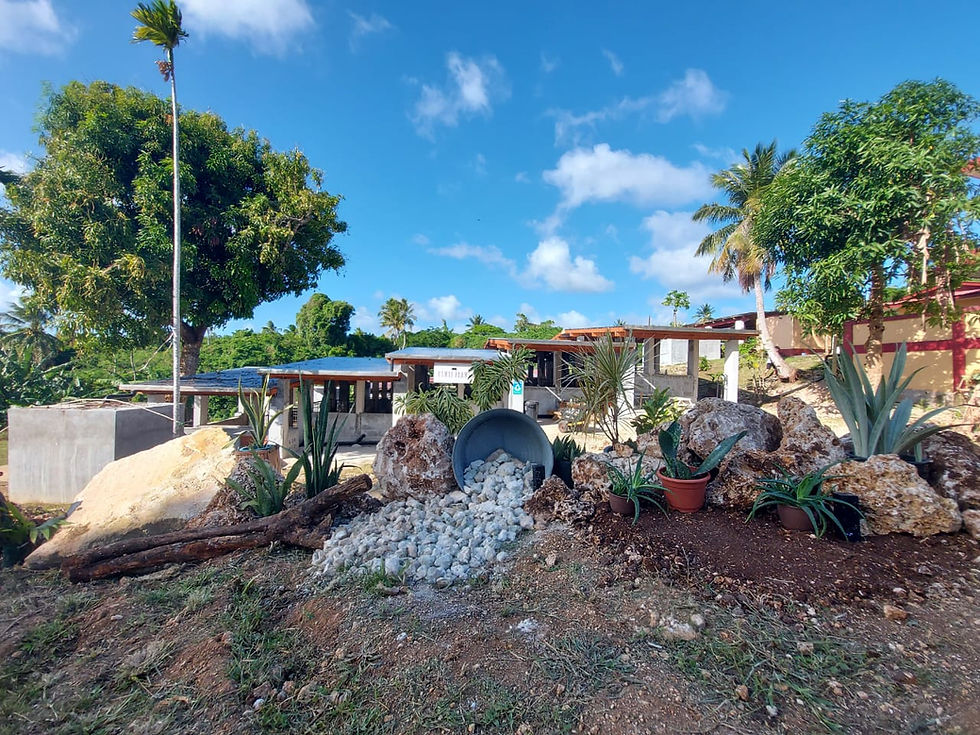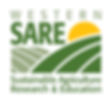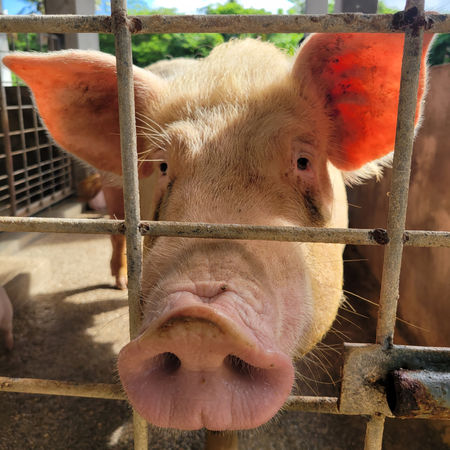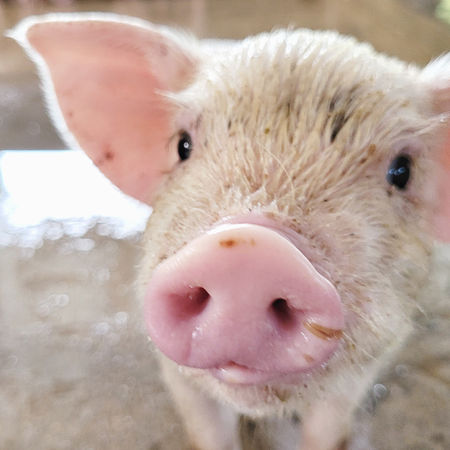
2025 Western SARE Farmer/Rancher Grant
Kumoi Farms Sustaining Pig Farming in the Marianas Initiative
FW25-005
Project Type: Farmer/Rancher
Funds awarded in 2025: $25,000.00
Projected End Date: 05/31/2026
Grant Recipient: Kumoi Farms
Region: Western
State: Northern Mariana Islands
Principal Investigator: Simon V. Deleon Guerrero
Proposal summary:
Simon Deleon Guerrero owns and operates Kumoi Farms, a small-scale pig farm on the island of Saipan, Northern Mariana Islands. This Pacific island U.S. territory identifies pork consumption as a festive cultural staple in the form of whole roasting and pork meat cuts for local dishes. Although subsistence pig farming was typical amongst indigenous family clans of past generations, it has become increasingly common for the whole pig to be purchased from small-scale pig producers operating on outdoor facilities. Despite high demands, a decline in local pig production is noticed wherein local producers cannot meet the demands of local consumer groups.
The primary goal of this project is to provide agricultural stakeholders of the Marianas with improved techniques and tools to enhance local piggeries and promote conservation resources in support of maintaining this local food system. Kumoi Farms will focus on the earliest stages of pig development wherein improved conditions of gestating and birthing pigs and their piglets raised in a sustainable outdoor facility will be demonstrated and observed. The potential significances of this project may lead to positive profit margins, enhanced animal production ethics, and increased awareness of a vulnerable cultural practice.
Expected project outcomes include increased piglet births through temperature stress reduction and alternative farrowing systems to mitigate piglet mortality and improve local pig production supply challenges. Successful project outcomes may also encourage further research to support strengthened pig-rearing practices and aid in the progression of conservation management for local outdoor swine operations.
Kumoi Farms will share project outcomes with local pig producers, consumer groups, and community members through farmer-to-farmer demonstrations, field day/farm tours, factsheets, press articles, and use of social media platforms to cultivate awareness, promote food security and increase conservation efforts through pig farming in the Marianas.
Project objectives from proposal:
Research Objectives:
Objective 1 will focus on pig production during the rainy season which is the coldest of the two seasons. Because pigs are pregnant for three months, three weeks, and three days, four pigs (two of the same parity) will be randomly selected and observed from breeding in July to birth in October where each mother will receive improved care by means of increased hydration and by the use of heating elements such as heat lamps and heat pads.
Objective 2 will mirror the activities from Objective 1, but breeding will instead be performed in January with piglet birth in April under the normal conditions of the dry season. Accordingly, this experimental period will be conducted without additional hydration and heating to offer a range for comparison.
Objective 3 will focus on safeguarding against piglet crushing. All pig participants will give birth within their assigned pens wherein an 8-foot-wide metal protective barrier and components, referred to as a temporary individual farrowing system, will be introduced as labor and delivery approaches. This protective device is an alternative birthing system of the commonly used farrowing crate which will allow space for piglets to escape while still being able to access their mother for feeding. The prototype design will conform with the USDA-NRCS constructed facility pens wherein the newly fabricated system will connect to existing iron channels to minimize impacts.
Objective 4 Statistical analysis will be used to compare the collected data needed to identify relationships and patterns and to emphasize the main outcomes of objectives 1, 2, and 3. Piglet mortality scores from rainy and dry weather conditions will be compared. Data collected at different intervals will be organized using data visualization tools to measure and evaluate the progression of outcomes at each stage.
Education Objectives:
Farmer-to-farmer demonstrations (3)
Field day (1)
Farm Tour (10)
PowerPoint presentation (1)
Video Presentations (3)
Factsheets (300+ copies)
This material is based upon work that is supported by the National Institute of Food and Agriculture, U.S. Department of Agriculture, under award number 2023-38640-39571 through the Western Sustainable Agriculture Research and Education program under project number FW25-005. USDA is an equal opportunity employer and service provider. Any opinions, findings, conclusions, or recommendations expressed in this publication are those of the author(s) and do not necessarily reflect the view of the U.S. Department of Agriculture.


Power in Numbers
50000
Underserved Community Residents
3
Islands
45
Volunteers
Project Gallery


